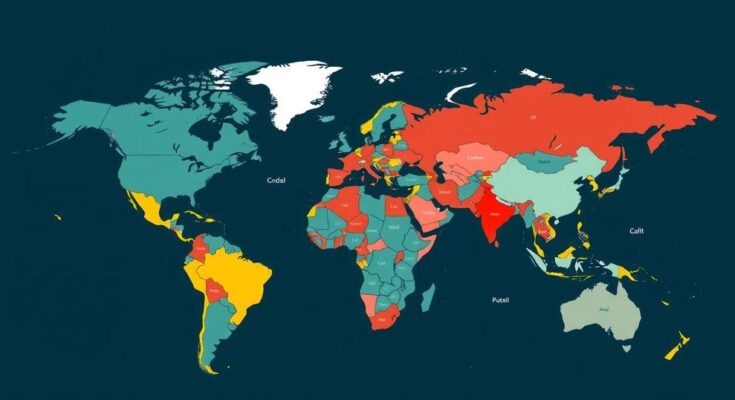The article discusses the alarming rise in aid worker deaths in 2024, with reported fatalities reaching 281, surpassing last year’s record. Ongoing conflicts in Gaza, Lebanon, Haiti, Ukraine, and Guinea complicate humanitarian efforts, as violence escalates and access to essential aid is severely restricted. The UN and partners are working tirelessly to deliver necessary support amidst these challenges, highlighting the urgent need for accountability and protection for aid workers.
The humanitarian landscape is facing unprecedented challenges as violence escalates globally. In 2024, aid worker fatalities have reached alarming levels, with a reported death toll of 281, breaking last year’s grim record of 280. This alarming statistic has prompted condemnation from Under-Secretary-General for Humanitarian Affairs, Tom Fletcher, who emphasized the urgent need for State and party accountability to protect humanitarian workers amid escalating threats in conflict zones such as Gaza, Afghanistan, Sudan, and Ukraine.
In the Occupied Palestinian Territory, humanitarian conditions have deteriorated significantly due to ongoing Israeli military operations. Reports indicate severe casualties, particularly in Gaza, where significant bombings have resulted in civilian deaths and the destruction of shelters. Presently, access to aid is severely restricted, exacerbating suffering as winter approaches, with many Palestinians desperately in need of adequate shelter and assistance. Humanitarian partners are striving to provide support, with only limited success in overcoming the barriers imposed by the conflict.
Similarly, Lebanon is grappling with the consequences of intense airstrikes, particularly in the Baalbeck-Hermel region, where civilian casualties are mounting. Attacks on healthcare facilities by warring factions continue to pose grave threats to medical staff and patients, undermining essential humanitarian operations. The United Nations and its partners are actively working to deliver winter supplies and food assistance amidst these challenges.
In Haiti, escalating violence continues to displace thousands from their homes in Port-au-Prince, with the UN conducting emergency responses, including the provision of water and health services to affected populations.
Ukraine also faces a critical humanitarian crisis as ongoing hostilities result in increased civilian suffering, particularly in frontline areas. Attacks on energy infrastructure are compounding vulnerabilities as winter approaches. Relief efforts are underway to support affected communities with essential supplies and services.
Lastly, the UN has responded to severe flooding in Guinea by allocating $2.5 million to assist over 60,000 displaced individuals, highlighting the interconnectedness of humanitarian needs globally. As conflicts and natural disasters continue to escalate, the urgency for effective humanitarian response and protection for aid workers remains paramount.
The article addresses significant humanitarian crises affecting multiple regions—Gaza, Lebanon, Haiti, Ukraine, and Guinea—driven by conflict and natural disasters. Each section outlines critical insights into the threats faced by civilians and humanitarian workers, particularly in light of escalating violence and the challenges faced in delivering essential aid. The statistics presented reflect a broader trend of rising threats against aid personnel, with a call for improved security measures and adherence to international humanitarian laws to safeguard those providing humanitarian assistance.
In conclusion, the international community must urgently address the alarming rise in violence against aid workers and civilians facing dire humanitarian situations across several regions. The pressing need for protection and support has never been more critical, as highlighted by the tragic statistics and ongoing crises in Gaza, Lebanon, Haiti, Ukraine, and Guinea. Collaborative efforts must strengthen commitments to uphold humanitarian law and ensure that aid reaches those most in need.
Original Source: www.unocha.org




